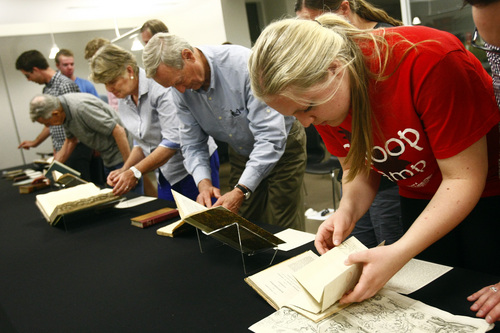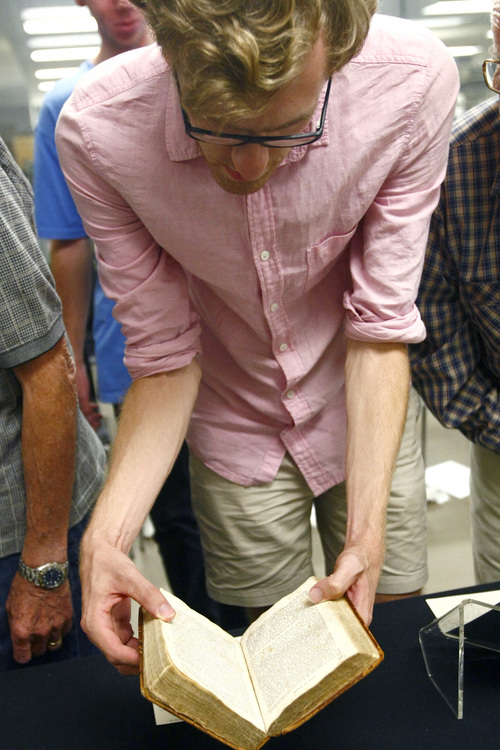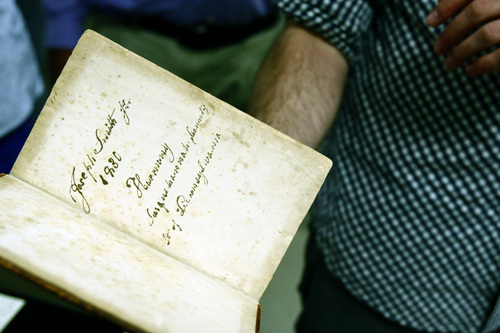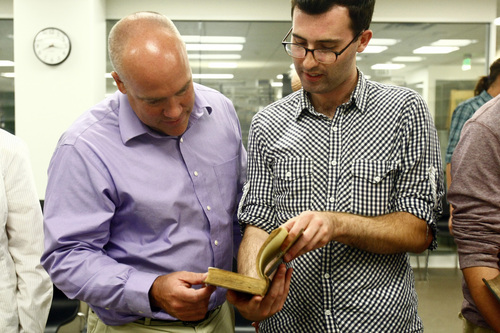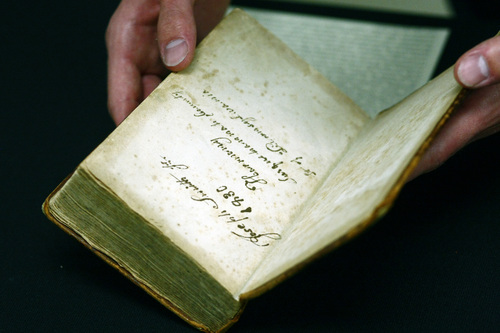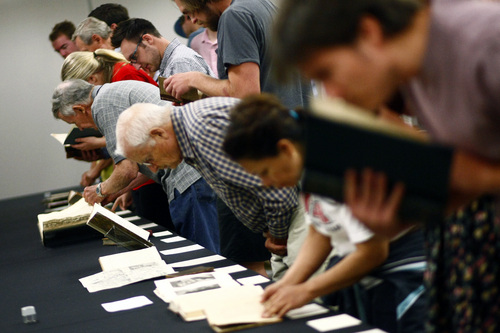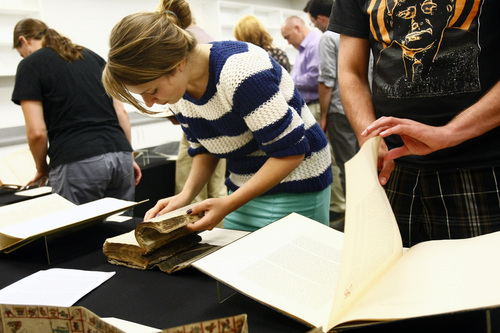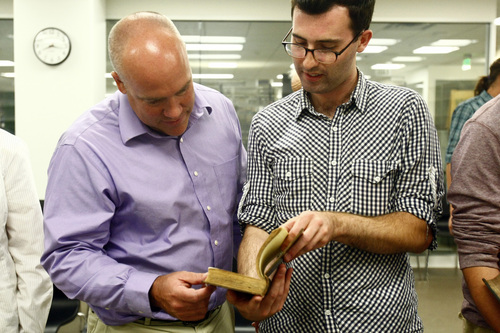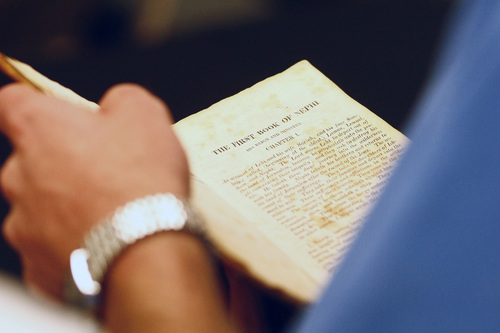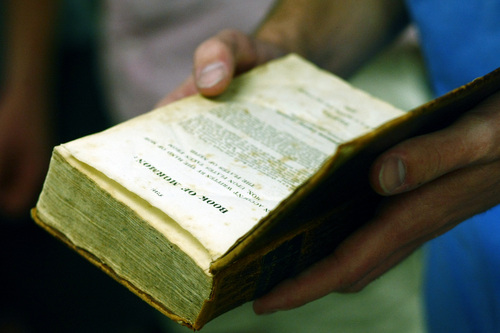This is an archived article that was published on sltrib.com in 2013, and information in the article may be outdated. It is provided only for personal research purposes and may not be reprinted.
For Latter-day Saints, the Book of Mormon is scripture.
To University of Utah associate instructor David Bokovoy, it is also a story.
Bokovoy, who has spent most of his academic career on the Old Testament, is teaching a first-of-its-kind course: The Book of Mormon as literature.
"We have a need to understand Mormonism and its history as a sub-field of religious studies," he said. A course like this "has not been done before in an academic context. ... We're allowing the text to speak for itself."
Though several U.S. colleges and universities have created or beefed up Mormon studies courses with the growing voice of the Utah-based Church of Jesus Christ of Latter-day Saints in the national conversation, Bokovoy says his class is unique in focusing solely on the language, syntax and themes of the Book of Mormon rather than the church's social history.
The course takes a neutral, critical view but doesn't deal with the historical accuracy of the text, which Mormons believe tells the story of people who lived in the Americas primarily from about 600 B.C. to A.D. 400.
"You don't have to believe in its historic claims to appreciate it as literature," he said.
Bokovoy said he's not yet sure how he'll handle the sometimes-controversial racial descriptions of tribes when he reaches that part of the text later in the semester.
The course, sponsored by the donation-funded Tanner Humanities Center, examines how the book mimics the Bible in language and tone, and how the story fits as a piece of 19th-century American literature. To that end, Bokovoy recently took about 20 students to the Special Collections section at the U.'s Marriott Library, where they handled and studied more than a dozen books and objects, some hundreds of years old, that relate to the text's themes.
"The idea is, in a book way, to set the scene," said Luise Poulton, managing curator of the library's rare books.
One of those works was a copy of "Madoc," an 1805 poem by Robert Southey about a Welsh king who settled along the Missouri River and founded a race of American Indian called the Aztecas.
"Mesoamerican and Egyptian culture were especially attractive to the world at this time," Poulton said. Another was a leather-bound copy of a 1596 Geneva Bible that survived despite being severely damaged.
"I wanted you to see how important the object is," Poulton said. "It's waterlogged, but someone still brought it over [to America]."
The Book of Mormon has similar significance to the students, most of whom are members of the LDS Church. Bokovoy is Mormon as well but said his training in religious studies, including a doctorate in the Hebrew Bible and the Ancient Near East from nonsectarian Jewish-sponsored Brandeis University in Massachusetts, gives him critical distance.
Student Lexi Hinchman, 23, who isn't LDS, says the students are more religiously similar than her other religious studies classes.
"Most people have read it," she said. "I don't have as much background. They get into discussions that are way beyond what we've done in class so far ... hopefully by the end of class I'll have it."
Bob Peterson, for example, said he has more than 50 books dealing with all aspects of the Book of Mormon, both for and against.
"It's important to look at it from all angles," said Peterson, a retired electrical engineer who served a Mormon mission in Berlin in 1953.
Student Colby Townsend, 24, said it's important to study the text within its worldview.
"For me, it makes it more real," he said. "If it wasn't, it would be too superhuman, too surreal."
Twitter: @lwhitehurst —
Book of Mormon echoes Bible in language, themes
Bible • "And they shall turn the rivers [of Egypt] far away; and the brooks of defence shall be emptied and dried up: the reeds and flags shall wither." (Isaiah 19: 6)
Book of Mormon • "By [Moses'] word the waters of the Red Sea were divided hither and thither, and [the Israelites] passed through on dry ground. But ye know that the Egyptians drowned. ... Whoso shall lay his hands upon me shall wither as a dried reed; and he shall be as naught before the power of God, for God shall smite him. … If [God] should command me that I should say unto this water, be thou earth, it should be earth." (1 Nephi 17: 26, 27, 48, 50)
Complied by U. instructor David Bokovoy


